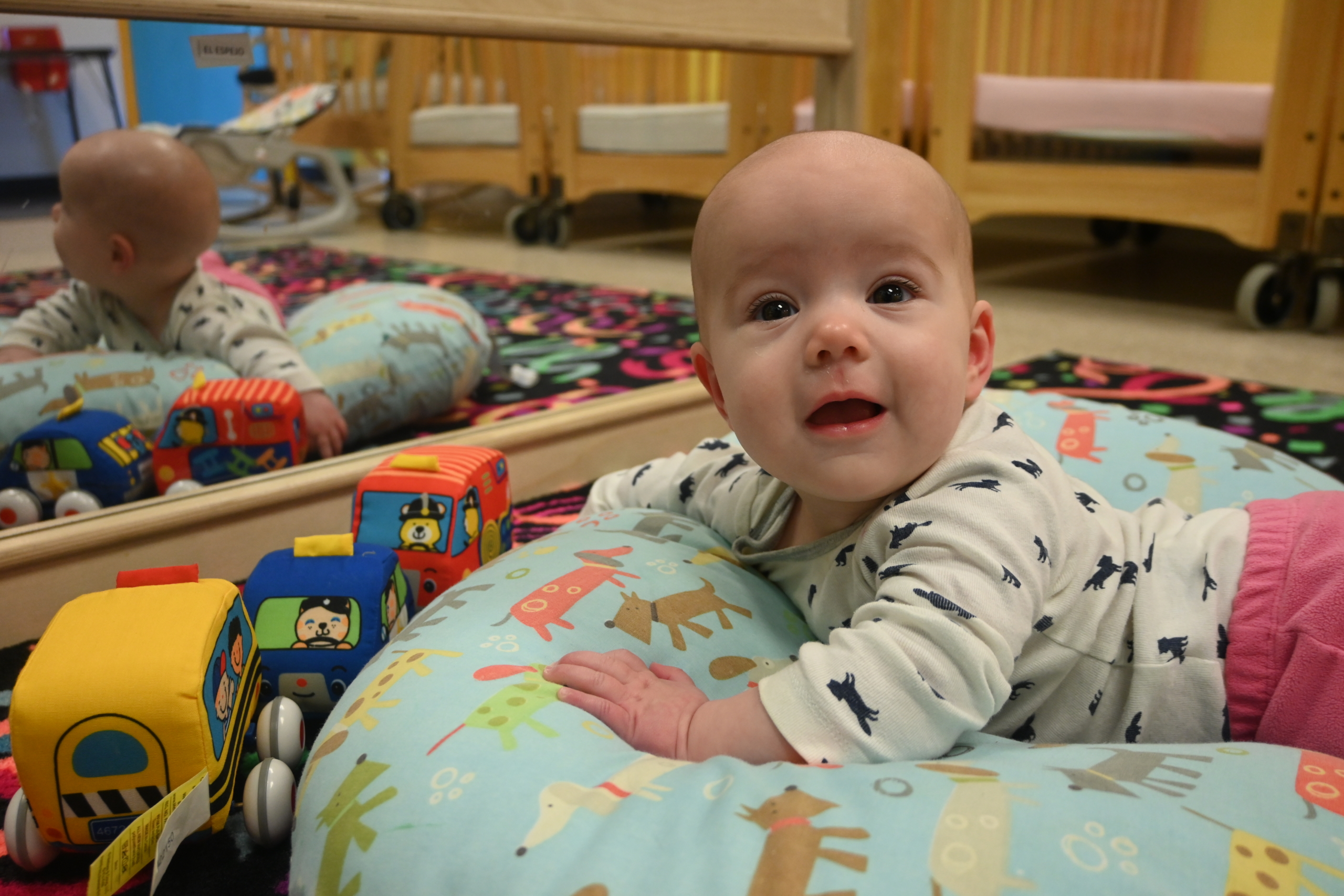During your baby’s first year, training their visual and cognitive perception is important to ensure proper brain development. Everyday experiences impact how children perceive their surroundings, so making each day count is worth it.
Check out these tips for maximizing your child’s cognitive abilities. We’ve curated a list of enjoyable learning activities for infants so they can train their brains while having fun.
How to Promote Brain Development in Infants
For infants, everything in the world is new to them. That is why exposing them to as much of the world as possible at this stage of their life is important. It’s a crucial phase for them to learn, grow, and develop their cognitive, social, and fine motor skills.
Interactive play is a great way to boost language learning and memory perception. Working on these skills early on will help them greatly once they enter school and need to communicate with others and memorize important information.
Here are 10 simple infant learning activities for you and your kid to try out:
Recite Nursery Rhymes Together
Singing nursery rhymes effectively introduces new words to infants, especially since catchy tunes can capture their attention. With enough repetition, your kid will begin to recognize certain sounds and might even mouth them along with you!
Here are some easy nursery rhymes to recite to your child:
- The Alphabet Song
- Itsy Bitsy Spider
- Five Little Ducks
- Twinkle, Twinkle, Little Star
- Mary Had a Little Lamb
Read Storybooks Out Loud During Bedtime
Lull your little ones to sleep by reading them classic children’s story books out loud as part of their bedtime routine. Besides reading the words out loud to help them recognize certain voices and sounds, you can show them books with brightly-colored pictures and illustrations to aid their cognitive development.
Have Regular Conversations With Your Baby
Even if your infant may not be able to respond to you at 0 to 3 months of age, it’s still worth it to talk with your baby as often as possible. Doing so helps improve their language, communication, and listening skills. You’ll notice they listen to you intently and may even attempt to respond by making noises and cooing at you.
Engage in Object Play
Infants begin to understand the “cause and effect” of playing by 4 to 5 months of age. They’ll even start dropping things on purpose to see how you react during this time. You can use this opportunity to encourage object play by simply handing them small boxes or plastic cups.
Object play lays the foundation for developing other crucial skills, such as language learning and social skills. Just make sure that these objects are not potential choking hazards.
Hang Plush Toys and Rattles Over Your Baby’s Crib
Any object that produces sound can easily attract your baby’s attention. Rattles help babies develop their visual and cognitive perception, while toys hanging over your baby’s crib will pique their curiosity. Since they’ll definitely want to reach out to get them, it also helps stimulate their fine motor skills.
Play Peek-A-Boo
When your child reaches 7 to 8 months, infants learn the concept of object permanence, which asserts that objects continue to exist, even if hidden. disappearing cheerio or peek-a-boo are fun games that help teach your infant about this concept. These games also help develop your child’s memory and attention skills.
Stack Blocks, Cups, and Toys
Once your child is familiar with object play, you can teach them how to stack cups and blocks. Apart from developing your child’s cognitive abilities, this activity also enhances their fine motor skills.
Let Your Baby Pick Toys From a Container
Another fun activity that encourages your child’s autonomy and cognitive development is container play. All you need is a container full of toys.
Allow your kid to pick and grab whichever toy they want from the container. They may even turn the whole container upside down and watch as the toys fall out and make noise.
Make this a daily habit to teach your infant to do things independently. It’ll also be easier to teach them how to put the toys back on their own as they age.
Prepare Sensory Bins
Level up playtime with your kid using sensory bins. Just like a toy container, you’ll need to fill up a box with toys. What makes a sensory box different from a regular toy box is that these toys are made of varying textures, colors, and even smells to help stimulate your infant’s five senses. You can get as creative as you want with it!
Point Out Colors and Shapes
When describing objects, make it a habit to highlight the unique characteristics of each item, such as their color, shape, and texture. During playtime, you may also categorize your child’s toys based on these specific classifications.
Boost Your Baby’s Brain Power
Maintaining a sound mind and body should start as early as possible. With a sharp memory and robust strength, your baby can take on the world and be whoever they want to be when they grow up.
Visit the Rayito de Sol blog today for more fun learning activities for toddlers and infants.











